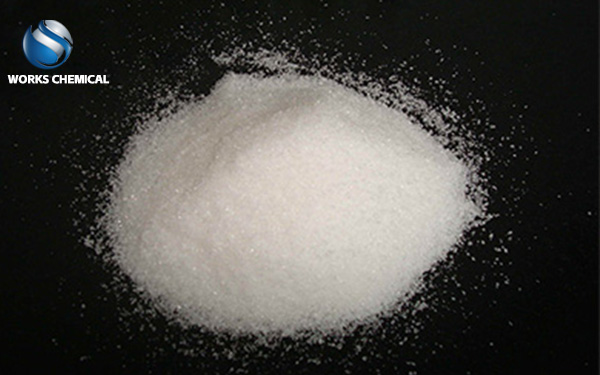
Definition and function of sludge conditioner

Sludge conditioner is a chemical agent specially designed to change the physical and chemical properties of sludge. By reducing the surface load and specific surface area of the sludge, it destroys the bacterial structure, reduces the adhesion and surface activity of the sludge, and thus improves the dehydration efficiency. The application of sludge conditioner not only promotes the progress of sludge treatment technology, but also makes a positive contribution to the cause of environmental protection.
Two, the type of sludge conditioner
The types of sludge conditioners are varied, and according to their main components and different mechanisms of action, they can be divided into the following categories:
Flocculant:
Aluminum salt: such as aluminum sulfate, aluminum chloride, etc., has a strong polymerization and neutralization effect, and has a good removal effect on suspended matter and organic matter.
Iron salts: such as ferrous sulfate, iron sulfate, etc., can form insoluble precipitation with alkaline substances in water, and promote the precipitation of suspended solids.
Organic flocculants: such as polyaluminum chloride, polyferric sulfate, polyaluminum sulfate, etc., have good flocculation effect, and will not cause secondary pollution to the water body.
Coagulant:
Organic coagulants: such as polyvinyl alcohol, polyacrylamide, etc., have good coagulation effect, can effectively reduce the volume and weight of sludge, and reduce the treatment cost.
Mineral coagulants: such as aluminum hydroxide, calcium silicate, etc., can form larger particles, so that the sedimentation rate of sludge is accelerated.
Ion exchanger:
Cation exchanger: such as polyvinyl alcohol, polyacrylamide, etc., can adsorb and remove anionic substances in water, such as nitrite, chloride ions, etc.
Anion exchanger: also including polyvinyl alcohol, polyacrylamide, etc., can adsorb and remove cationic substances in water, such as magnesium ions, iron ions, etc.
Sludge filter aid:
silicate filter aid: such as potassium silicate, can increase the permeability and pressure resistance of the sludge, thereby speeding up the filtration speed of the sludge.
Organic filter aid: such as polymer filter aid, polyacrylamide, etc., has excellent filtration aid and pressure resistance, and can effectively improve the filtration effect of sludge.
Three, the use of sludge conditioner
The application methods of sludge conditioner mainly include single addition, mixed addition and step by step addition. Different dosing methods are suitable for different sludge treatment processes and conditioner types, and the appropriate dosing methods should be selected according to the actual situation.
Separate addition: the conditioner is added to the sludge separately for mixing and conditioning.
Mixing addition: the conditioner and other treatment AIDS (such as flocculant, filter aid, etc.) are put into the sludge for mixing and conditioning.
Step by step addition: the conditioner is added to different treatment stages to achieve better conditioning effects.
At the same time, the dosage and proportion of sludge conditioner are also key factors affecting the dehydration efficiency and solid content. Too little dosing can lead to poor conditioning, while too much dosing can cause waste and environmental risks. Therefore, it is necessary to strictly control the dosage and proportion in the dosing process.
4. Advantages of sludge conditioner
Sludge conditioner has the following advantages in sludge treatment:
High dehydration efficiency: By optimizing the surface structure of the sludge, the water content is greatly reduced, and the dehydration effect is far more than the traditional PAM.
Reduce costs: replace inorganic flocculants, reduce the use of chemical agents, and reduce costs.
Environmentally friendly: dehydration while maintaining the same organic matter content, sludge properties are stable, and resource utilization is more convenient. At the same time, the use of sludge conditioner does not affect the conductivity of the water, and the pH value and salt content of the filtrate are almost unchanged.
Wide applicability: can be used with plate and frame filter press, high pressure belt dehydrator and other equipment.
Five, sludge conditioner operation precautions
During the operation of sludge conditioner, the following matters need to be noted:
Operators should wear protective gloves and masks to avoid direct contact with conditioners and inhalation of harmful gases.
The sludge conditioner should be fully stirred and mixed before operation to ensure its uniform distribution and dissolution.
When dosing the conditioner, the appropriate dosing method and dosage should be selected according to the actual situation to avoid waste and environmental risks.
During the operation, it is necessary to pay attention to the pH value and temperature of the conditioner to avoid exceeding the appropriate range and affecting the conditioning effect.
After operation, it is necessary to clean the equipment and the site in time to avoid the residue of the conditioner and cross contamination.
The sludge treatment process is regularly tested and adjusted, and adjusted and optimized according to the actual effect.
In summary, sludge conditioner plays an important role in sludge treatment. Through reasonable selection and use of sludge conditioner, the dewatering efficiency and treatment effect of sludge can be effectively improved, and the treatment cost and environmental risk can be reduced. At the same time, it is also necessary to pay attention to the safety and environmental protection issues in the operation process to ensure the sustainable development of sludge treatment.